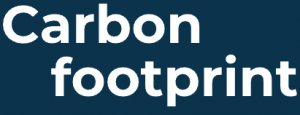Software and Services
Advice and other services
What do you look for when choosing the right advisor?
There are many different parties who can provide advice on Carbon Footprinting. Which consulting firm is the best fit depends on several things. For example, whether it is a multinational company or a company in the SME sector. Consultancies that work a lot with multinationals know the dynamics and the challenges of that type of organization. In general, there is a lot of data available there and all kinds of departments can provide answers to questions, such as a reporting department that provides information. The challenge then is often more in managing the process. In the case of a company in the SME sector, however, advisors often go directly to the director when they are looking for information. And sometimes the director himself makes the printout of the requested data. An important common denominator is that all these advisors speak the language of logistics. That helps in extracting, interpreting and validating the right data. Because data is always the basis to work with.
Other factors that come into play when choosing the right consulting firm are:
- What knowledge does the agency have about my industry?
- Who are my internal interlocutors that I pair with the consultants? And to what extent do they match up well? Data analysts match up fine with other analysts who look at things from a scientific angle. But sometimes it is important that the consultant also knows what it is like to drag crates. Or getting that extra load of pallets into that one truck after all. If the match is good, the willingness to share information and receive feedback is greater.
- Do the ambitions match up? Someone who wants to start registering emissions has a different level of ambition than someone who has a 30% reduction target.
- Does it click on a personal level? This sometimes gets submerged by the ‘hard criteria’ but can be the difference between success and failure.
Sector organizations
Sector organizations such as TLN, evofenedex and others are important as pioneers in emission reduction. They share their thoughts, communicate to their supporters and enthuse them to get started. By sharing information, setting benchmarks and working together in communities, best practices emerge. For the coming period the focus of the campaign will be on becoming sustainable, and not only from an ‘environmental’ point of view but also based on the knowledge that CO2 and saving money go hand in hand. If companies start working differently and start registering their emissions, they will gain new insights that will enable them to reduce emissions and increase their profitability. Software such as BigMile helps with the analysis.
Reduction programs.
Another source of advice can be found from other companies: learning from your neighbor is one of the cheapest ways to get advice. Like-minded people are easy to find through reduction programs and recognition programs. In the Netherlands, Lean & Green is a well-known program where much attention is paid to learning from each other.
Unlocking information
Top Sector Logistics helps with information at different levels.
- Problems in the application of Carbon Footprinting (Application Engineering):
Companies are looking for solutions to concrete problems and questions they encounter in daily practice. Top Sector Logistics helps by actively retrieving these questions and then testing the best solutions for them. These solutions are made available on this site in the form of frequently asked questions (FAQs).
- Larger, more complex issues within Carbon Footprinting:
Some issues need to be addressed larger or more broadly. For this we publish the guidelines and application notes. For example, the guidelines describe how to allocate emissions to individual packages, the application notes describe how to do this in practice.
Sharing knowledge, but not competitive information
Companies from the same sector or industry can therefore learn a lot from each other. It is important, however, to be more specific than ‘the food sector’, because a milk transporter, a frozen food delivery company and a beer brewer all have their own specific situations, with their own problems and their own solutions. At the same time, no one wants to share sensitive information with their competitors. There are solutions for that. As a result, you can learn well from each other as industry colleagues and see where emissions can be reduced.
